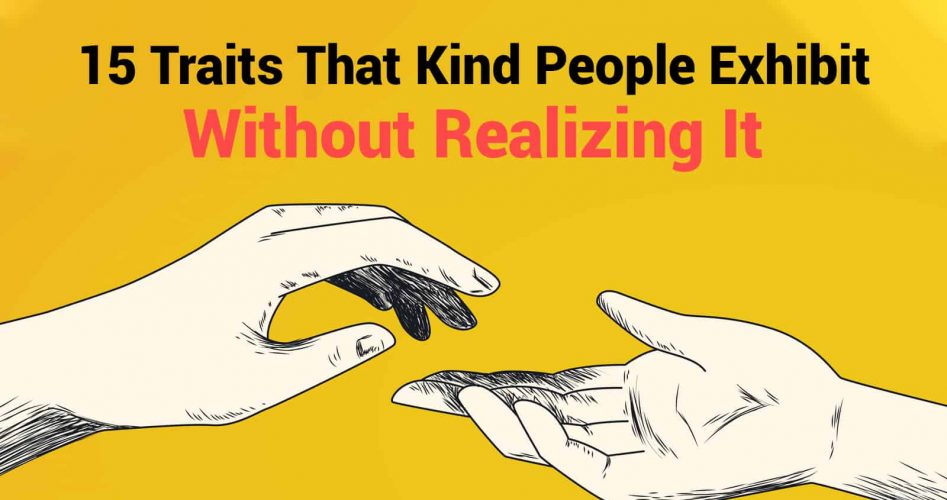The character traits of an introvert are ones that indicate a life of solitude. Introverts feel most comfortable when they are alone and left to their thoughts and ideas. They come across as shy and quiet, but sometimes that isn’t the case.
They tend to rely on their mind to recharge their energy, whereas extroverts rely on others to recharge. Neither of these methods is wrong, it’s just the differences between the personality types.
Introverts tend to share many of the same character traits. With up to half of the people in the United States being an introvert, you likely know a few of them. It can be easy to identify an introvert if you know the character traits associate with the personality type.
15 Character Traits of an Introvert
1. They Enjoy Being Alone
Introverts look forward to time alone, while other people may dread the thought of alone time. They require solitude often to stay happy. The activities they enjoy tend to be ones that can be done alone because that’s when they feel the best.
This fact does not mean that your introverted pal will never want your companionship. Instead, it means that they thrive when they’ve spent time recharging their batteries–alone!
2. They Need Quiet to Concentrate
When there are things or sounds happening around them, introverts will struggle to focus. They may begin to feel overwhelmed and frustrated. Introverts become distracted more often than extroverts do, which is why they need quiet.
3. They Take Time to Make Decisions
Making decisions right away is not something an introvert can do. They have to think about it, weigh the options, and reflect on their feelings first. Then, after thinking about it and making a plan, they will be ready to make a decision.
4. Social Interaction Drains Introverts
Some people want to have plans every weekend, whereas introverts are the opposite. An introvert may still go out of go to a party, but they won’t stay as late and they won’t go every time. By the end of the night, they are ready to be comfortably back in their own home.
Introverts will feel exhausted after they’ve spent time around a crowd of people. They may feel stressed out and need a quiet day to themselves afterward to recuperate.
5. They are Often Thought to be Shy (and this misconception happens often!)
By people who don’t know them well, introverts are often described as being shy. This is because they prefer to be quiet and reserved.
They think about what they want to say and consider it heavily before speaking, so they may not speak much. Small talk isn’t something they will enjoy, so they would rather sit quietly instead of participating in a conversation.
6. They are Introspective
Introverts are often daydreamers who plan things out in their mind before things into action. They won’t begin on any project until they have had a good amount of time to think it through.
Often, they spend time self-reflecting and learning more about the things on their mind. This allows them to understand themselves and their feelings better. They are highly interested in making progress on their interests, and they prefer to feel prepared and ready.
7. They Learn by Watching
Introverts prefer to learn by watching the task be done. Through repeated observation, they can focus on the motions until they can do the task on their own. If they are required to learn in a hands-on way, they prefer to do it alone until they perfect it.
8. They Work Better Alone
Introverts dread group projects and can become overwhelmed quickly when they have to participate in one. They can work better on their own because they can focus better, allowing them to work more effectively.
It’s not that introverts don’t work well with others, it’s just that they can focus better alone. Some of this could come from the socialization aspects because it can cause anxiety or distraction for an introvert.
Due to this, they tend to look for jobs that allow them to always work alone. They gravitate toward careers such as being a writer, accountant, programmer, graphic designer, or artist.
9. They Love Deeply
Introverts might shy away from falling in love quickly. But when they finally find someone special, look out! They love deeply and genuinely care about the people in their life. They keep their group of friends and loved ones small, and they highly value those relationships. This is one of the reasons that they love more deeply than extroverts.
Since they think things through so much, introverts like to show people how much they love them. They tend to do this by surprising their loved ones with small acts of kindness.
10. They Zone Out Often
This could be related to their introspective qualities. When they can, they will zone out to escape their current situation.
They let their mind wander from what they are supposed to be doing to what they would rather be doing. This happens most often when they are feeling overwhelmed or uncomfortable in the present environment. Others may think it means they are unfocused or being rude, but it’s a way of survival for the introvert.
11. They are Loyal
Introverts take a long time to get to know someone. They also keep their group of friends small. So, when you become close to them, they will always be loyal to you.
Since they have invested so much into the relationship, you can expect they won’t blow you off or betray you. They will also be extremely hurt if you betray them or end the friendship.
12. They Have a Close Group of Friends and Like to Keep it That Way
While they prefer to be alone, introverts do have close friends who they enjoy spending time with. They will keep their group of friends small, and will often resist new friends. It’s normal that they only have relationships that make them happy and are quality relationships.
13. They Like People to Make a Plan Before Coming Over
Introverts don’t like anything to be unexpected, but unexpected visitors are a big issue for them. Since they think things through so much, they tend to have plans for themselves. Unexpected visitors throw off their plans, and they may not have the energy to host anyone.
They want to plan for visitors and they have to prepare themselves for the company. It’s a big source of discomfort and annoyance to them when this isn’t how it works out.
14. Their Preferred Method of Communication is Through Writing
They are more comfortable writing their words than speaking them. This is especially true when they haven’t had time to prepare what they are going to say. They like to focus on their words and consider how it sounds, which is only possible through writing.
So while you won’t get many phone calls, expect lots of long text message to keep in touch!
15. They Don’t Answer the Phone
If they don’t recognize the phone number, they won’t ever answer the phone. Sometimes, even when they do recognize the number, they still won’t answer. They don’t like to talk in certain places or situations, so they’ll avoid all phone calls during those times.
Another reason they may avoid phone calls is that it could be interrupting a personal project they are working on. They also won’t answer if they are in a bad mood or thinking something through.
Plus, you have to remember that introverts don’t enjoy small talk. Oftentimes, phone calls require small talk and it makes them feel uncomfortable just thinking about it. To get ahold of them quickly, you will want to send a text message so they know what it’s about.
More to Know About Introversion
There are Different Levels
Not all introverts will exhibit every character trait associated with it. Sometimes they will have a few characteristics that are common to extroversion, but more of the qualities of an introvert. Their characteristics may also change as they grow older and they process things differently.
What Causes Introversion?
While no one is certain about what causes someone to be an introvert or extrovert, there are some ideas. There is some evidence that supports the idea that genetics plays a role in someone’s characteristics. Evidence also shows that it can depend on a person’s childhood and their environment.
Research shows that introverted brains work differently, and these folks have more blood flow to the frontal lobe of their brain. This is the part of the brain that helps with memory, problem-solving, and planning.
Introverted people are also affected by dopamine differently than those who are extroverted. Dopamine is a chemical in the brain that is directly related to pleasure and reward. For introverts, it creates a feeling of exhaustion and stress while extroverts become excited by it.
Final Thoughts on Character Traits That Reveal an Introvert>
Introverts share many of the same character traits, although they may not have all of the traits on this list. Knowing these character traits can help you understand introverts better, allowing you to communicate and interact appropriately.
Although they are much different than extroverts, introverts still like to spend time with extroverts. They enjoy going out once in a while, although they may want to be back home earlier. Even if they love solitude, they will participate in fun events and socialize regularly.
They tend to be more reflective, thoughtful, and loyal. Plus, they seem to love more deeply. If you have an introvert in your life, you should value the relationship and keep them around.











